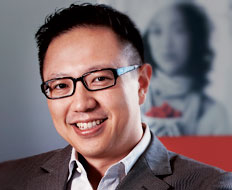Gaining insight into what makes their competitors tick can give quick-serve executives valuable strategic advantages. But while sharing competitive information might seem counterintuitive to the industry’s top CEOs, some companies have found that throwing open their doors and inviting rivals in can have its benefits.
A Tennessee-based burger brand has been doing this for more than a decade. Pal’s Sudden Service introduced its Pal’s Business Excellence Institute (BEI) in Kingsport, Tennessee, in 2000 after it won the Malcolm Baldrige National Quality Award.
“It was formed with the idea of sharing its world-class practices with other organizations, particularly restaurants, but with all other organizations so that they could become better and improve,” says David J. McClaskey, BEI’s president. As a winner of the prestigious Baldrige Award, Pal’s was expected to share its strategies for success, a mission it’s embraced with gusto. And while winning the Baldrige initially encouraged BEI’s launch, McClaskey says things have gone far beyond the award’s requirements.
“It continued because we have a strong belief that everybody’s better off when everybody runs a good business—your competitors and everybody else,” he says.
Another Baldrige Award winner (and former BEI participant), K&N Management, is also inviting organizations in to see what makes it a quality leader. As the licensed Austin, Texas–area developer for Rudy’s Country Store and Bar-B-Q, and creators of Mighty Fine Burgers, Fries and Shakes, Ken Schiller, K&N’s co-owner, says his team has two approaches to sharing their insight.
“We have formal learning sessions, where someone can bring a number of leaders from their company in to attend either a half-day or a full-day structured learning session,” Schiller says. “And then we are also willing to go offsite to someone’s company and do talks, or speeches, or even full-day sessions if they request that.” Schiller says the sessions cover a range of topics, from how his organization cultivates its company culture to methodologies for hiring, training, and benchmarking its efforts.
Not all learning opportunities for CEOs are presented as formally as a scheduled class or workshop. Dan Kim, founder and chief concept officer at Dallas-based Red Mango, says executives must also be willing to pursue informal channels of learning from each other.
“Finding time for knowledge sharing is difficult to do, especially in the restaurant business,” he says. Kim says exchanging e-mails with other CEOs or seeking out interviews where executives discuss topics that are of particular interest are good informal methods for learning from competition. He says he’s asked other CEOs about several topics, including “social media, digital marketing, and what to expect when franchising.”
McClaskey says one reason it’s smart for quick-service executives to share tips with competitive CEOs is that it carries the potential to benefit the entire restaurant industry.
“No matter where a customer goes, if they have a good experience eating out, then they eat out more often,” he says. “We figure everybody wins when businesses are run at excellent levels.”
Kim isn’t sure what effect sharing his knowledge will have on the industry as a whole, but says the rewards clearly stretch beyond his own organization. “I think by helping top-level executives to become more confident and personable, it will make management and leadership more enjoyable, the byproduct of which is hopefully happier and more productive workplaces,” he says.
Inviting competitors in for a lesson on how to be great can also provide tremendous benefits to executives’ own organizations, Schiller says.
“It definitely keeps you sharp, knowing you have other smart people in the room with you, and you’ve got to be prepared for that,” he says. His team has improved in their work, he says, and is committed to staying on top of their game so they can better communicate how they do what they do. “It helps instill pride in them,” he says. “They see all these successful companies [that] want to come and learn from us.”
While Kim shares his knowledge within a smaller circle (“Only to those I either trust, respect, or have developed a good relationship with,” he says), he still believes that business is about giving and taking. He says most of the CEOs on the receiving end of his advice are thankful for it, and some are also surprised he’s willing to share it. It’s one way he develops a circle of peers that fit his personality and needs.
“I think people enjoy being around similar people, so if we’re willing to spend time getting to know each other and staying in touch, we all end up sharing helpful information,” Kim says. He adds that he tries to avoid peer chief executives who don’t reciprocate the sharing of advice, or those who try to pry too much information from him.
Bringing business leaders together is also a good way to trigger useful back-and-forth discussions, McClaskey says. Not only are BEI’s attendees interested in seeing the inner workings of a high-performing operation, but they also can provide valuable insight of their own. It’s a dynamic the Pal’s team has learned from.
“The very fact that you are sharing your best practices enables people to share their knowledge back to you in a way that’s very helpful to both parties,” McClaskey says.












